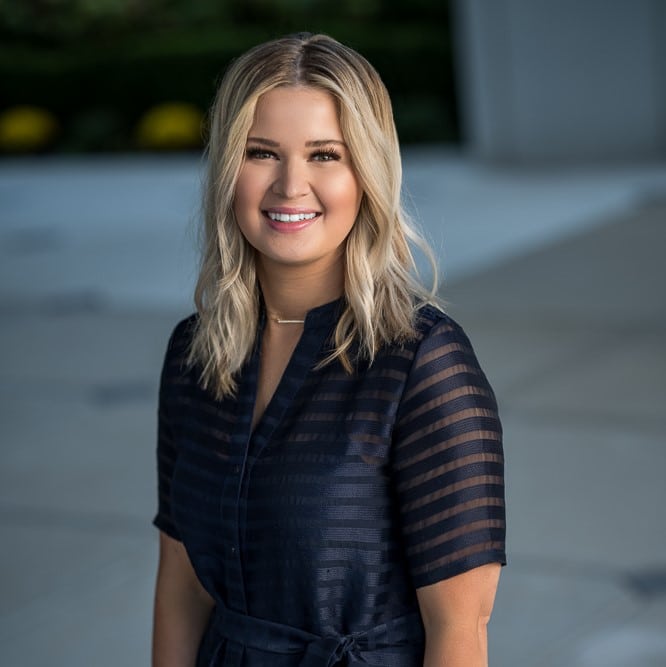We recently celebrated International Women’s Day, a time to recognize and advocate for the contributions and advancement of women. This includes professional, social and cultural advances, and the accomplishments we continue to see women making when it comes to taking control of their finances. Our passion lies in guiding women on this journey and empowering them to actively navigate all aspects of their life, career, finances, and eventually help determine the impact of their legacy. As each year passes, Krilogy helps a growing number of women whom recognize that now is the time to capture that control of, gain confidence in and map out their future.
Times are Changing
In previous decades, women married and began establishing a family much younger than they do today, typically around age 20 or 21. Chances are, their husbands worked, they stayed home with the kids and were likely not involved in decisions about money. That responsibility was in the hands of someone else who held the knowledge and control of the woman’s financial future.
Fast forward to present times. According to the National Association of Women Business Owners, 9.4 million businesses in the U.S. are owned by women, accounting for $1.5 trillion in sales and employing nearly 8 million people. In addition, the number of women in executive and leadership positions continues to grow and nearly 61% of all mothers with children under the age of three participate in the workforce (according to the Bureau of Labor Statistics, 2015).
Just as they are making a bigger splash in their professional lives, these women are also continuing to recognize that they can not only control their vision for what they would like their futures to look like, but also be deliberate in creating the plan and implementing the tactics to get them there. It’s an exciting time and an inspiring moment of which to be a part.
Begin Taking Control
When embarking on any journey, the first step can also be the most daunting. It does not have to be, especially when it comes to your finances. Begin by reflecting. Consider what is keeping you up at night, what issues you hope will come to resolution and what’s most important to you. Women often wonder:
- Have I saved enough, and how much will I really need?
- What are my goals for retirement?
- How do I protect my family?
- What legacy, if any, do I want to leave behind?
- How will I cover health care and long term care costs?
At this phase, it is wise to talk with a professional you can trust. A financial advisor who focuses on helping women with their investing, estate planning, and overall wealth management planning can help you prioritize and make sure the thing (or things) that are most important to you are taken care of first. There are many components of a financial plan and it can seem overwhelming. A trusted advisor can guide you toward the action plan and solutions most applicable to your needs, spark the conversations you need to have about your money, life and family, and educate you about your options.
The Five Pillars of Your Financial Plan
While they don’t always fall in this order for every client, there are five common areas that you may consider as you work through the process of taking control of your finances:
- Investments
Your investments, including your 401(k), IRA’s, stocks, bonds, and any other assets you may hold are considered in the context of your overall plan. For many, it is the first time conversations take place regarding the big picture of your financial future. We’ll examine issues such as:- Are you invested properly for your goals and risk tolerance?
- Are you comfortable with your risk tolerance today?
- Are you investing too conservatively or too risky given your time horizon?
- What are your end goals?
- Are there more cost effective ways to reach these goals?
- Does your current advisor have fiduciary responsibility on all your accounts (not just your investment accounts)?
- How does what you are currently doing impact your future?
- What options exist to more effectively impact your future?
Based on these conversations, we arrive at recommendations that take your entire financial life into account and determine how we can help you work towards your goals.
- Insurance1
Insurance is protection, but what that protection is for is different for every person. The answer lies in considering what matters most. Perhaps what’s most important to you is protecting your family in the event that something should happen to you or making sure you provide for their future educational needs. Maybe it’s all about ensuring that your health care or long term care costs are taken care of and don’t become a burden to your children or deplete your assets. Or, consider this: according to the CDC, more women report a disability, due to accident or illness, than men. Having a long term care event or being disabled can significantly affect your long-term income potential and financial goals. Insurance can offer protection. Regardless of what kind of protection is important to you, having a plan for your insurance needs helps you take control, especially when it comes to events over which you have no control. - Estate Planning
I have found that estate planning is among the most important components as women work through a financial plan. Your estate plan can dictate your exact wishes and how those wishes are executed. It is the ultimate way to take control of what happens to your money, your children, your family or other heirs in the event of your death or if you become incapacitated. You make the decisions. A well documented estate plan takes the grief out of decision making during a very emotional time and helps avoid probate, court and any battles between family members. Through an estate plan, you can dictate your health care directives, set up trusts for your heirs, allocate money to your favorite charities, and specify what happens to your investments, your property and even your pets. You control what happens. - Taxes
Whether we like it or not, taxes are going to play a role in your financial life; however, there are ways to put yourself in a more optimal position for your financial situation. During the planning process, we will consider the tax consequences of various buying, selling or changes in your portfolio, and how we can plan appropriately to minimize your tax exposure in retirement. Krilogy’s Drew Forrester recently wrote a comprehensive article outlining tax planning investment strategies. Evaluating what you have, considering how the various funds are taxed now and in retirement and reviewing options for tax efficient investment strategies will help you gain control. - Other Considerations
So many things make up your financial plan outside of investments, insurance, estate and tax planning, but sadly, many women and advisors do not put all the pieces together and consider how every piece can impact the overall plan. We will review things like home and auto insurance and perhaps an umbrella policy to cover any accidents. We will look at your budget and savings to determine whether you are saving money efficiently, paying off higher interest loans first and ways you can catch up with your savings if you have fallen behind. Or, perhaps you own a business, rental properties, a second home or are involved in other ventures. We look at these items and how they factor into your overall financial plan. Also, we do not want to forget about the intangibles such as helping you on your career path and making connections to facilitate your next move which could bring greater income potential and better benefits.
Do not Wait for Tragedy to Strike
While many more women are taking steps to take control of their financial lives, many are pushed to do so because they have experienced some sort of tragedy. At that point, they are reacting to a situation and perhaps do not have all of the pieces needed to assume full control. Our advice: do not wait. Take the first step and ask for help. You do not have to know everything or be the fixer. It is time for you to put yourself first both emotionally and financially. You will gain confidence, peace of mind, and the ultimate say in what you want.
1Insurance services are non-advisory services that may be offered to a client. Krilogy Advisors whom are licensed insurance agents are eligible to receive commissions for the sale of insurance products, including those recommended to Krilogy Financial clients. You may purchase insurance products recommended by Krilogy or your financial advisor through other agents that are not affiliated with Krilogy. Krilogy’s Fees will not be reduced to offset the payment of insurance commissions to Krilogy advisors. Please see Krilogy Financial’s Form ADV Part 2A for more complete disclosure.
Krilogy Financial® is a registered investment adviser. Information presented is for educational purposes only and does not intend to make an offer or solicitation for the sale or purchase of any specific securities, investments, or investment strategies. Investments involve risk and unless otherwise stated, are not guaranteed. Be sure to first consult with a qualified financial adviser and/or tax professional before implementing any strategy discussed herein. Past performance is not indicative of future performance.
All expressions of opinion are subject to change. This information is distributed for educational purposes only, and it is not to be construed as an offer, solicitation, recommendation, or endorsement of any particular security, products, or services.
Krilogy Financial® does not provide tax, legal or accounting advice. This material has been prepared for informational purposes only, and is not intended to provide, and should not be relied on for, tax, legal or accounting advice. You should consult your own tax, legal and accounting advisors before engaging in any transaction.



















